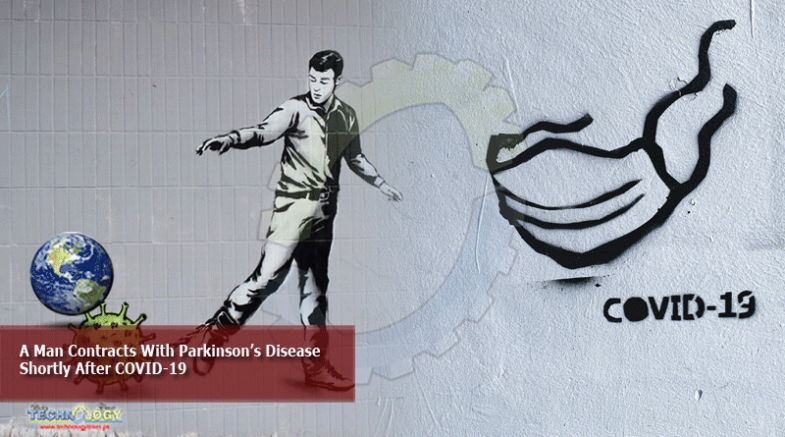A Man Has Contracted What Appears To Be Parkinson’s Disease Shortly After A Confirmed Infection Of COVID-19, According To…

A Case Study In The Lancet Neurology.
Viruses have been linked to the development of Parkinson’s disease many times before, with common culprits being influenza A and Epstein-Barr virus, but this is the first time recorded of it being linked to Covid-19.
The patient in question, a 45-year-old man from Ashdod, Israel, was admitted to Samson Assuta Ashdod University Hospital with typical Covid-19 symptoms, including loss of smell, a dry cough, and muscle pain. After testing positive for the virus, he was hospitalized for 3 days before being isolated in a Covid facility for 3 weeks, after which he tested negative and was taken home.
However, during this time the man noticed hand tremors and a decline in his handwriting quality. After 2 months he was admitted to the Department of Neurology, where multiple tests were performed on him, and he was found to have normal cognitive function. Despite this, he continued displaying tremors and symptoms related to Parkinson’s.
The man was diagnosed with parkinsonism (any condition that causes Parkinson’s-like movement abnormalities). Since then he has further declined and now has unreadable handwriting, extreme tremors on his right side, and reduced facial expression (hypomimia).
Covid-19 symptoms include loss of smell, or anosmia, which commonly precedes Parkinson’s disease, but this marks the first time someone has possibly developed parkinsonism as a result of Covid-19 infection.
While it cannot be known for certain that the virus directly caused the disease, with the man having no family history of Parkinson’s or any other glaring risk factors, it is suspected by the authors that Covid-19 played a significant role.
Interestingly, they hypothesize that the man had a genetic makeup that predisposed him to parkinsonism as a result of Covid-19 infection, though they do not know what that genetic factor could be just yet. A more likely reason is that multiple factors involved with Covid-19 infection leads to toxic stress and inhibition of the body’s natural protective measures for neurons, resulting in neuron death.
This case adds to the growing evidence that Covid-19 can have a serious and lasting impact on the brain. Evidence suggests infection causes damage to the brain’s blood supply, with a study in June also published in The Lancet finding 31 percent of people with Covid-related psychological effects had altered mental states, with 10 people even developing psychosis.
The researchers emphasize that it is rare for the virus to actually enter the central nervous system, but neurological symptoms might instead be a result of the immune system waging war on the infection.
This news was originally published at iflscience.com
